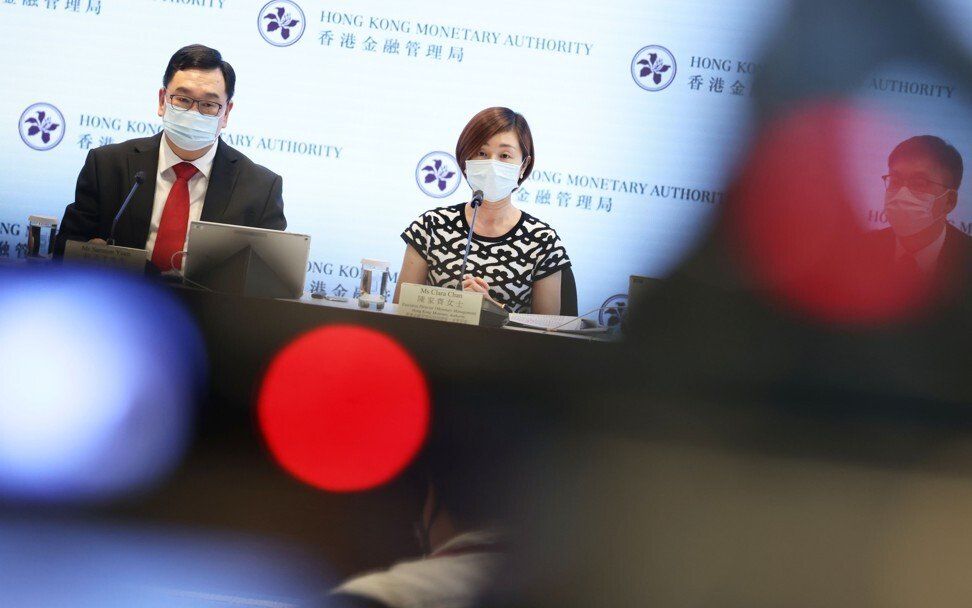HSBC, BOCHK, Standard Chartered and other lenders all saw strong growth in Silver Bond subscriptions on day one of the offering after the government lowered the age threshold to 60 from 65.
Hong Kong’s senior citizens rushed to subscribe to the latest batch of inflation-protected bonds on the first day of the offering on Tuesday, after the government opened the bond offering to more people by lowering the entry age from 65 to 60, according to banks and brokers.
The government plans to double the maximum offer of the so-called Silver Bond to HK$30 billion (US$3.9 billion), compared with the maximum HK$15 billion issued in its prior offering in December.
The bigger offering came as the Hong Kong government, for the first time, lowered the minimum age of eligibility to those who will turn 60 next year, referring to people who were born in 1962. This is the first time the minimum age has been lowered from 65 since the bonds were issued to retail investors beginning in 2016.
The lower age threshold will add 600,000 residents to the pool of investors who can subscribe to the securities, expanding the total number of qualified subscribers to about 2 million, according to Hong Kong Monetary Authority(HKMA).
The initial offering for the bonds will be HK$24 billion, but can be increased to a maximum of HK$30 billion if demand is strong. The subscription period started on Tuesday and will run until July 30.
The response on day one showed demand for the bonds remained strong, according to banks and brokers.
The bonds will pay a guaranteed annual rate of 3.5 per cent, unchanged from the December sale. The minimum payment is one-and-a-half times larger than what the government offered four years ago.
The payout is more generous than the minimum 2 per cent rate on similar inflation-linked bonds issued by the city, which are known as iBonds and offered to the general public. Both bonds would beat the forecast inflation rate of 1 per cent this year.
Most banks involved in the offering said their first-day subscriptions were much higher than those on the first day of December’s offering.
HSBC, the biggest of the city’s three currency-issuing banks, said the first day subscription is higherthan December’s and the highest on record.
Bank of China (Hong Kong), which is the joint lead manager with HSBC for the offerings, said first day applicants increased 60 per cent from a year before, as it received over 10,000 applications. On average, each applicant subscribed for about 25lots, with each lot amounting to HK$10,000.
Standard Chartered, another note-issuing bank, said the number of applications it received on Tuesday was up 35 per cent from the same day of the last batch of Silver Bonds, while the subscribed amounts also increased by 15 per cent.
DBS saw the number of subscriptions on Tuesday rise 50 per cent from the first day of the December offering. A third of the subscribers are between the ages of 60 and 64, a bank spokeswoman said.
CMB Wing Lung Bank said its subscription numbers and amount doubled when compared to the first day of the last batch. The average subscription amount was HK$420,000 per customer, the lender said in a statement.
US lender Citibank said it received similar subscription numbers as the last offering.
 Samson Yuen, head of currency and settlement at the Hong Kong Monetary
Authority, and Clara Chan, the HKMA’s executive director for monetary
management, speak at a June briefing on the latest round of Silver
Bonds.
Samson Yuen, head of currency and settlement at the Hong Kong Monetary
Authority, and Clara Chan, the HKMA’s executive director for monetary
management, speak at a June briefing on the latest round of Silver
Bonds.
The latest round of Silver Bonds comes as concerns are increasing about rising global inflation and whether central banks will pull back on stimulus before the economy completely recovers from a slowdown caused by the coronavirus pandemic.
Stock markets in Hong Kong and across the globe declined sharply to begin the week on concerns about a faltering economic recovery and a resurgence in Covid-19 cases.
Consumer prices rose 1 per cent in Hong Kong in May, the fifth consecutive monthly increase this year, according to the latest government figures.
The city’s economy suffered its worst contraction on record in 2020, but grew by 7.9 per cent in the first quarter, its fastest pace in more than a decade.
The 3.5 per cent Silver Bond coupon offers a more attractive payout than the average 12-month bank deposit rate of 0.05 per cent.
By comparison, the annualised return of the city’s Mandatory Provident Fund stood at 4.5 per cent in the first half of this year, while the city’s benchmark Hang Seng Index rose a modest 1 per cent this year as of Monday’s close.
This is the sixth annual offering of Silver Bonds, which the government wants to offer as an investment product for the city’s rapidly ageing population.
The size of the city’s elderly population is expected to double from 1.27 million in 2018 to 2.44 million by 2038, according to a January 2019 report
by the city’s government economist.
Last month, the latest round of Hong Kong’s iBonds, which have no age threshold, were oversubscribed 3.6 times and attracted a record HK$53.95 billion (US$7 billion) from 709,198 people, according to the HKMA.















